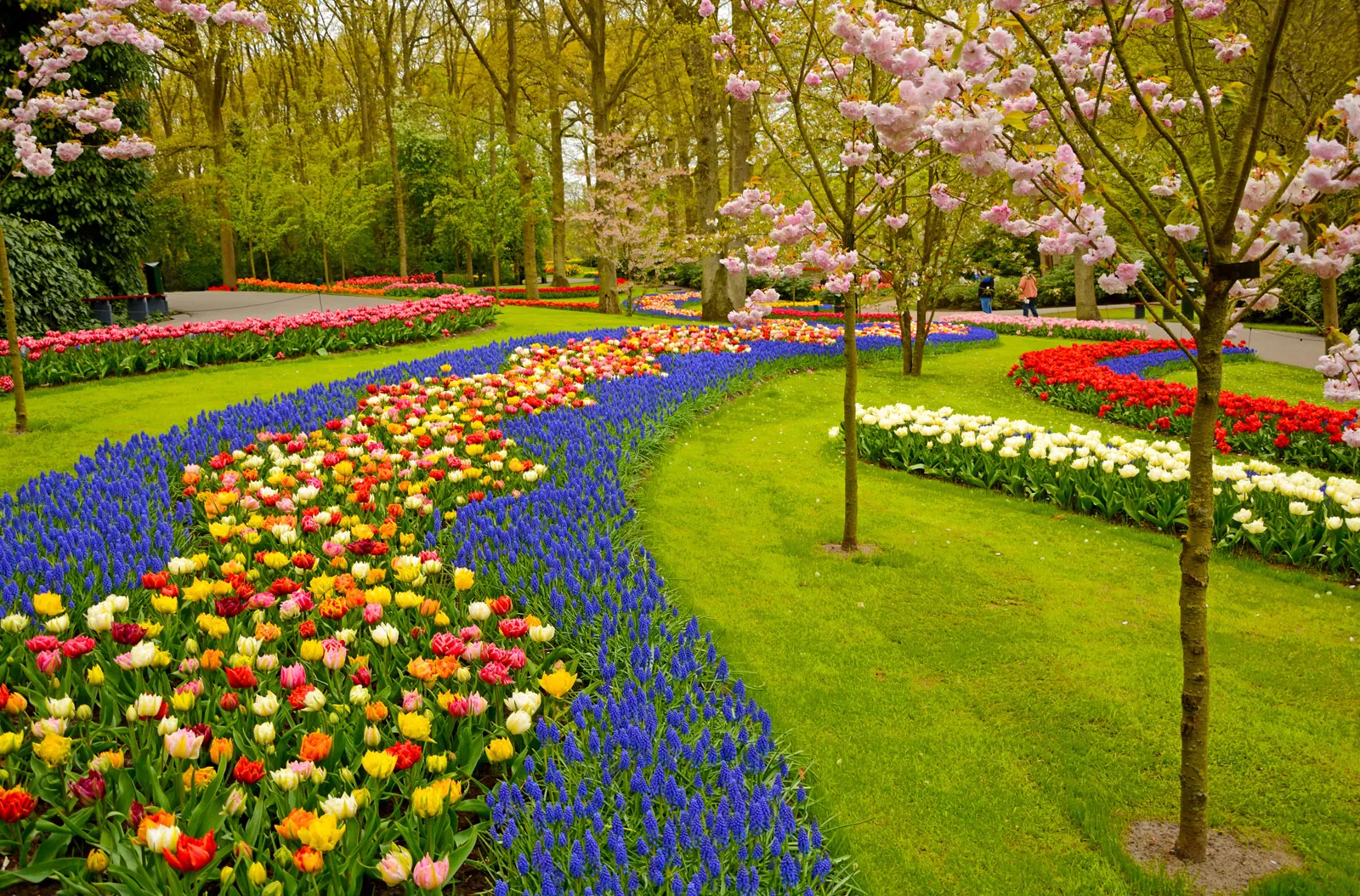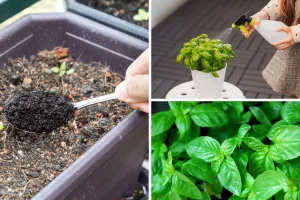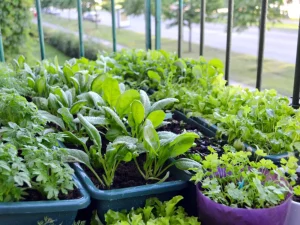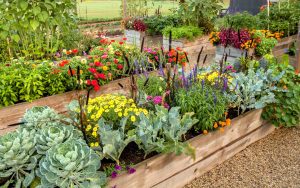Flowers are beautiful symbols of the rich beauty and elegance of nature. Having a garden full of organic flowers not only makes your landscape look better, but it also helps the planet. Organic flower gardening is more than just fun; This is a way for people to live in harmony with nature. In this in-depth look at the art and science of organic flower farming, we explore the basic philosophy, the benefits and the huge difference it can make to our environment.
The Essence of Organic Flower Gardening:
Organic flower gardening is all about caring for plants without the use of artificial chemicals or genetically modified organisms (GMOs). Instead, it relies on natural processes and diversity to create a garden that grows well. Organic gardeners care for the soil because they know that healthy roots are the key to beautiful flowers. They add compost, organic matter and natural fertilizers to the soil to make it a better place for flowers to grow without being damaged by chemical poisons or herbicides.
How to Grow Flowers Organically?
Take Care of Soil Health
Soil is the first step in organic flower growing. Gardeners try to improve soil structure and fertility through composting, using mulch and planting ground covers. Healthy soil filled with beneficial microorganisms provides the nutrients your flowers need to grow vigorously and colorfully.
Taking Care of Biodiversity
Organic gardening celebrates diversity. When it comes to flowers, this means growing many different varieties and hybrids. Pollinators such as bees and butterflies are attracted to the biodiversity, making the garden environment more vibrant. In addition, various flowers naturally repel pests, keeping the environment balanced.
Chemical-Free Pest Control
People who grow organic flowers use natural methods to repel pests. Aphids and caterpillars are killed by the introduction of good insects such as ladybugs and lacewings. Neem oil, derived from the plant, kills insects without harming them. These natural enemies and environmentally friendly methods keep pest populations in check.
How to Save Water
Organic practices help conserve water, a valuable resource. Waste is kept to a minimum by, among other things, dripping and collecting rainwater. Mulching keeps the soil moist and regulates the temperature. This ensures that the flowers receive enough water without using too much water.
How to Choose the Best Flowers?
When it comes to organic flower growing, choosing the right flowers is very important. Native and heirloom varieties are often chosen because they are naturally suited to the region’s temperatures and ecosystems. Native flowers provide food for native pollinators, which helps support local wildlife. Heirloom flowers are flowers that are passed down from generation to generation. They have special qualities and connections with the past that give them charm and character in the garden.
Get Ready for an Organic Garden:
A well-planned organic garden is the key to success. When choosing flower varieties, consider factors such as the amount of sunlight, soil type and water availability. Grouping flowers with similar needs makes care easier and ensures each plant grows well. Use companion plants, which means planting certain flowers together to deter pests or help the plants grow better. Nematodes do not like marigolds, so they are often planted next to other flowers and vegetables to protect them.
Why Growing Flowers Organically is Better?
Beauty without Harming the Environment
Organic gardens are beautiful places where nature thrives. The lack of chemicals in these gardens benefits the health of the entire world. They provide safe habitats for pollinators, increasing biodiversity and maintaining the delicate balance of the local environment.
Pollinators are Healthier
Organic flower fields do not use dangerous chemicals, keeping bees, butterflies and other pollinators safe. These animals are important to the world’s food supply because they help pollinate fruits and vegetables. An organic garden helps keep these important friends alive.
Durability and Beauty
Organic flower fields are attractive not only because they look beautiful, but also because they last a long time. These gardens do not deplete the soil or damage the earth. By using organic methods, your garden will remain beautiful and healthy for a long time.
Holistic Ecological Garden
Organic gardens become communities that can take care of themselves. Beneficial insects can control pest populations because they are attracted to different types of flowers. Flowers can cope with climate change because they have a strong root system from healthy soil. This approach for the entire garden ensures that the garden can withstand different conditions.
Educational and Therapeutic Value
Children in particular can learn a lot from an organic flower field. They learn about plant life cycles, the principles of pollination and the importance of protecting the environment. Caring for an organic garden can also be relaxing, allowing you to relax and connect with nature.
Conclusion:
In the world of organic flower farming, every flower is a work of art that shows how much we care about the earth and sustainability. These parks are not only beautiful, they also connect us with nature. In our research into organic flower gardening we learned about its rules, rewards and effects.
With organic flower growing, you do not need to use artificial chemicals to care for your plants. It requires healthy soil, many different types of plants and animals, natural ways to repel pests and water conservation techniques. Start by picking the right flowers, taking into account factors such as light and dirt.
When growing organically, native and heirloom flowers are the best. They are adapted to the temperatures of the region and help maintain local wildlife. Our grounds allow us to connect with nature and help us relax by giving us a place where we can connect with ourselves.
An organic garden not only looks beautiful in a short time, it also remains beautiful for a short time. They also leave lasting memories. They motivate people to do things that are good for the environment and show how much sustainability is important to us. Each petal in these gardens tells a story about making peace with the earth, protecting biodiversity and a greener future.
FAQs:
1. What are the basic principles of organic flower gardening? How do they contribute to the sustainability of the garden and the protection of the environment?
Discover the core principles of organic flower gardening, emphasizing the importance of soil health, biodiversity, natural pest control, water conservation and thoughtful flower selection. Discover how these principles can create a sustainable garden ecosystem while protecting the environment.
2. How can a gardener effectively plan and design an organic garden by considering factors such as sunlight, soil type and water availability?
Delve into the planning process of organic flower gardening and discuss basic considerations such as selecting appropriate flower varieties, grouping flowers with similar needs and implementing complementary planting techniques. Discover how thoughtful garden design can optimize care and promote the overall health of your garden.
3. What role do native and heirloom flowers play in organic gardening? How do they increase the resilience and biodiversity of a garden?
Discover the importance of native and heirloom flowers in organic gardening and learn about their adaptation to local climate and their contribution to supporting native pollinators. Discover how these flowers add charm and character to your garden while promoting biodiversity and ecosystem health.
4. How can organic flower gardening be educational and therapeutic, foster a deeper connection with nature, and promote mindfulness?
Discusses the educational and therapeutic aspects of organic flower gardening, emphasizing its potential to teach valuable lessons about plant life cycles, pollination, and environmental management. Discover how caring for a garden can provide a healing experience, promote mindfulness and create a deep connection with the natural world.
5. What are the long-term aesthetic and ecological benefits of organic flower gardening? How does it inspire others to adopt sustainable gardening practices?
Consider the lasting beauty of organic gardens and their positive impact on the environment. Discuss how these gardens serve as inspiring examples of permaculture practices and encourage others to adopt eco-friendly gardening techniques. Discover the potential of gardens to inspire the wider community to embrace organic gardening and environmental conservation.



